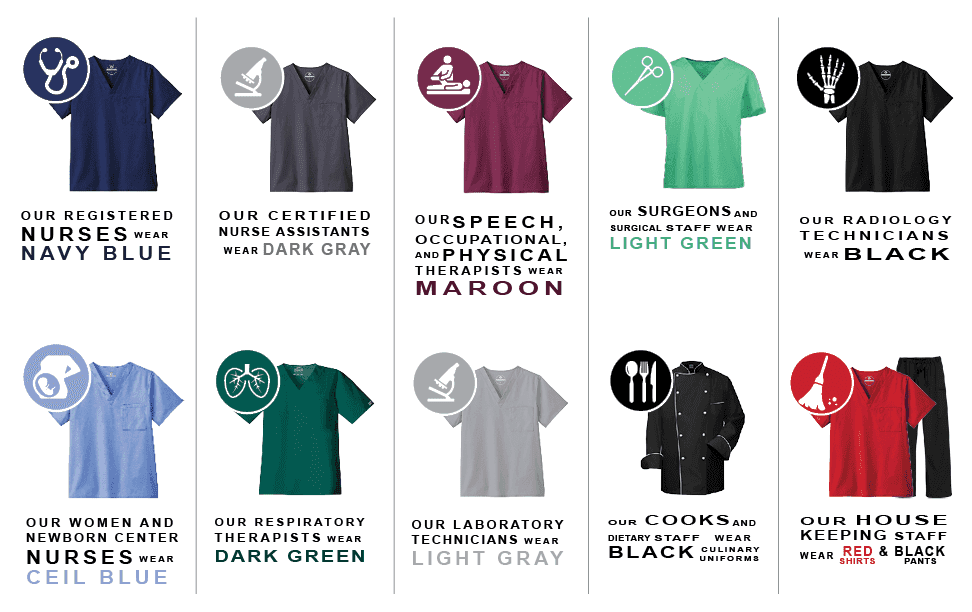
At Central Valley Medical Center, we encourage patients to be active participants in their care. Communication is a key aspect of the recovery process. Our team of medical professionals and support staff are knowledgeable and trustworthy caretakers, but patient input is vital to ensuring their attention is focused on the issues most important to you. To make this easier for you, our caregivers wear a name badge and scrub colors to match their roles. Below is a guide of our staff uniforms colors to help you identify who we are.

Our mission is to provide sensitive, compassionate health care of the highest quality to our patients, their families, and friends. We consider patients to be an important part of the healthcare team.
Physicians taking care of you may include your primary care physician, a physician assigned by the hospital, and other specialists your physician chooses to help with your care. Physicians may see you any time of day or night depending on their schedules.
Nurses or Registered Nurses (RNs) plan and coordinate patient overall care with physicians. They provide condition education, direct patient care, medication, and supervise other members of our nursing staff. RNs are the patient’s main point of contact for care and comfort.
Certified Nurse Assistants (CNAs) assist the RNs with beside patient care including activities of daily living, basic care, and vital signs. CNAs work closely with RNs and other medical staff to provide patients with the most complete care possible.
Unit Clerks work under the direction of nursing staff and physicians to coordinate patient appointments and perform clerical duties.
Speech, Occupational, and Physical Therapists and their staff evaluate, treat, and rehabilitate patients who have suffered from an injury, accident, or a chronic condition that needs long-term care to recover.
Surgeons and Surgical Staff operate on patients to treat injuries and diseases by providing the patient with postoperative surgical care and treatment.
Radiology Technicians provide imaging services in CT, MRI, Ultrasound, nuclear medicine, x-ray, and fluoroscopy.
Respiratory Therapists evaluate, treat, and care for patients with breathing or other cardiopulmonary disorders.
Laboratory Technicians prepare samples such as drawing blood and perform tests for analysis that helps physicians diagnose and treat patients.
Cooks and Dietary Staff prepares food, meals, and helps maintain nutritional values for patients within the diet needs established by the patient's physician.
House Keeping staff are responsible for cleaning the facilities and patient rooms, distributing laundry and clean linens while keeping a sterile environment, and maintaining facility neatness.